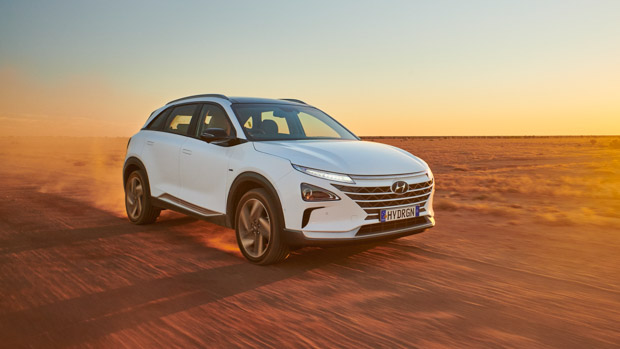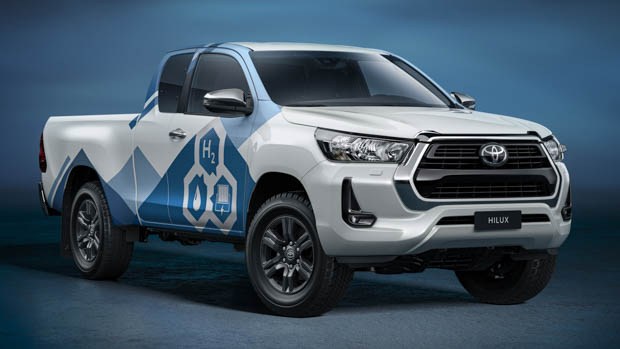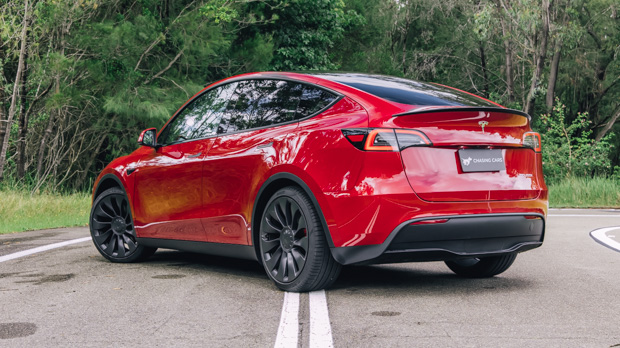-
Car Reviews
- Car News
-
Car Comparisons
Latest comparisons
- Chasing Deals
EVs also benefit, while blows are dealt to internal combustion cars, plug-in hybrids and dual-cab utes
Hydrogen fuel-cell vehicles such as those in development by Toyota and Hyundai had a win in last night’s federal budget, which pledged $2 billion to help kick-start Australia’s ‘green hydrogen’ industry.
The “Hydrogen Headstart” scheme imagines an Australia producing and exporting hydrogen fuel using renewable energy, which could then be used in applications such as hydrogen fuel electric vehicles (FCEVs) like the Toyota Mirai sedan or Hyundai Nexo SUV, which are available in Australia on a special order basis.
Hydrogen FCEVs are touted as an alternative to the current electric vehicle trend, which uses large battery packs recharged by electricity produced externally, often brown coal. Fuel-cell vehicles use hydrogen to produce their own electricity on-board, with the only tailpipe emission being water.
Hydrogen produced using only renewable energy, such as wind or solar, would mean 100 percent carbon-free motoring.
The big advantage of a hydrogen FCEV over a conventional electric vehicle is that hydrogen can be ‘topped up’ like petrol in a fraction of the time it takes to charge an EV. This makes hydrogen FCEVs an attractive alternative to electric vehicles for commercial applications such as buses and trucks.
Currently most hydrogen is produced using fossil fuel-based methane gas reforming, but the cost of ‘green hydrogen’ is expected to drop dramatically in the coming decades.
While the automotive industry moves en-masse to electric vehicles, Toyota and Hyundai continue to believe in a hydrogen fuel-cell future, having spent decades investing heavily in the technology.
The Federal Government pledge comes as the United States allocates billions to its own green energy industry, threatening to poach talent and opportunities from Australia.
Meanwhile, electric cars also benefitted from last night’s budget with $7.4 million to boost establishing stricter fuel efficiency standards, likely aligning Australia’s regulatory environment more closely with Europe – and making it harder to sell internal combustion cars in Australia.
Plug-in hybrid electric vehicles were dealt a blow, the government planning to strip their current fringe benefits tax exemption.
Sales of new dual-cab utes might also be impacted, the Albanese government reducing the maximum claimable under the Instant Asset Write-Off Scheme from $150,000 to $20,000 effective July 1. Any business taking delivery of a brand new dual-cab ute next financial year will be affected, even if they ordered it this financial year.
Latest news
About Chasing cars
Chasing Cars reviews are 100% independent.
Because we are powered by Budget Direct Insurance, we don’t receive advertising or sales revenue from car manufacturers.
We’re truly independent – giving you Australia’s best car reviews.


